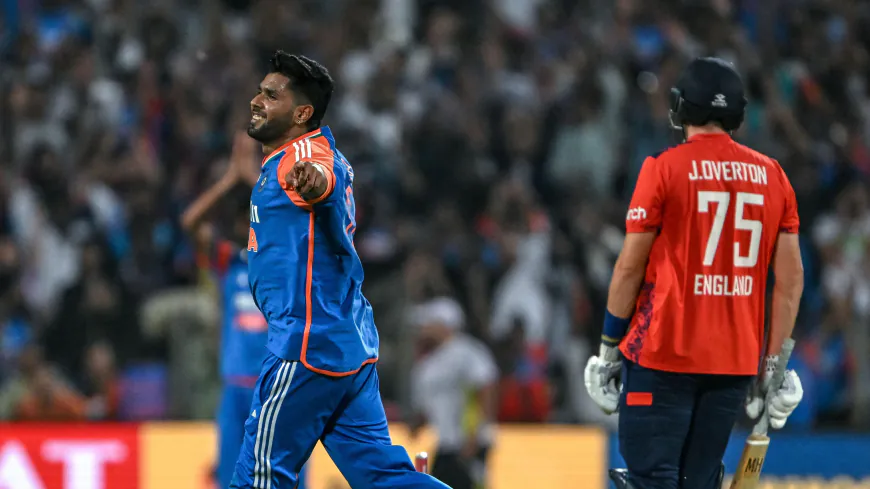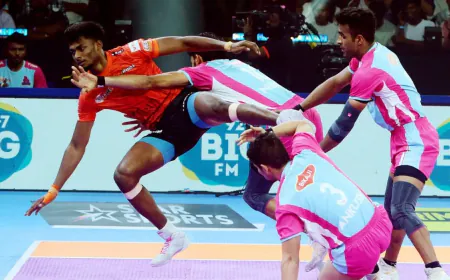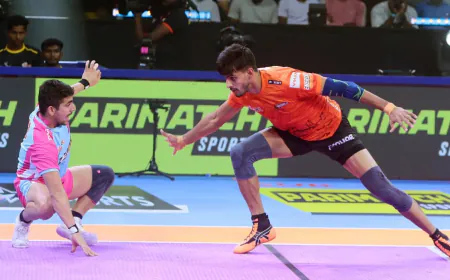A Controversial Concussion Replacement Creates Tension Between India and England
A controversy regarding concussion replacement occurred in the just-concluded match between India and England. A few players and officials raised queries over the concussion replacement decision. The controversy gave rise to a heated debate regarding the justice involved in the verdict. Both the teams and spectators are left bewildered and perturbed by this incident.

The fourth T20I between India and England was high-stakes action in Pune. No doubt the most heated debate came off the field after the contest when a call to use a concussion replacement saw Harshit Rana replace Shivam Dube for India and left England's captain, Jos Buttler visibly distressed. The Indian team was already rolling back home with all their champagne when Buttler's dissent sparked controversy about how the concussion replacement rule was being applied.
Shivam Dube, who proved to be a backbone for India in their innings, was right in the middle of this sort of thing. Batting at No. 6, the all-rounder smashed a quickfire 53 runs before getting run out on the last ball of the Indian innings. He had been struck on the helmet by a delivery earlier in the 19.5th over, and India, according to the rules, replaced him with Harshit Rana as a concussion substitute, and Rana went about his job with the ball immediately.
Buttler wasn't too long in voicing his objections over the substitution as he felt the replacement wasn't a "like-for-like" substitution as envisaged by the rules. He said, "Either Shivam Dube has gained about 25 mph with the ball or Harshit has really improved his batting." Buttler, seeming exasperated, added, "It's not a like-for-like replacement, we don't agree with that.". That is part of the game, but I still believe we could have gone on and won the match, but I don't think that was right. It's not just one reason for England losing, but it certainly put a question mark over the balance of the game.
India were 15-run winners to leave the series heading into its last match at an unassailable 3-1, though controversy dominated all else. But the lack of consultation made Buttler's woes worse. When the England captain came out to bat, he was informed that Rana was Dube's concussion substitute. "There's no consultation. I was thinking 'who's Harshit on for?" Buttler said in his objection to the decision, referring to the legitimacy of the replacement. and I was told he was the concussion replacement, which I obviously disagreed with," he said.
The umpires upheld the ruling made by the match referee. As such, there was nothing left for Buttler to do.
According to ICC rules, concussion substitution has to be allowed by the match referee. This "like-for-like" must not provide the outgoing player's new team with "too-obvious benefit". Thus, even though this flexibility in the rules allowed the match referee to exercise discretion, there is still a question of whether replacing a left-handed batsman, Dube, with Rana, who was a right-handed bowler, gave India too much of an advantage. After the game, Buttler said that they were not consulted by England on the change and his replacement did not seem fair. "It's not the whole reason why we didn't win the match, but we had our chances to win which we could have taken, but yeah, I'd like just to get a bit of clarity around that," Buttler said.
His words brought to fore questions on perceived inequality in the decision of the substitute, providing substantial debate on breach of the game's spirit. However, Buttler's words did not mirror the sentiments in the entire camp of England as the Indian team management had to stand by their word. The bowling coach for India, Morne Morkel said that all protocol was followed through. He stated that Dube had minor headache symptoms following the head hit and was replaced by Rana according to the book.
Morkel concluded that the match referee finally decided, and India was just completing the formal procedure. Rana's impact was undeniable in this game. For the first time in his T20I, he was on the field for this match; however, this was not seen as a shortcoming since, within a match, he asserted himself, capturing 3 wickets for 33 runs. His significant blows, such as Liam Livingstone and Jacob Bethel, besides Jamie Overton, took India to the win by bowling England out at 166 runs after being well in control at 62 no loss. Buttler had the response well-timed; though Rana's batting could not directly say it was too costly for England, it at least made things very comfortable for India.
"Well, he wasn't the match-winner of course, but he helped.".
The controversy that has been attached to the concussion substitute has, therefore, created questions on whether the rules have been interpreted right, with several commentators and cricket experts weighing in on whether it was fair. Some felt it was like the IPL's Impact Player rule where teams field 12 players-a situation that cannot happen in international cricket. In conclusion, while India’s victory was well-deserved, the incident has brought to light the complexities surrounding concussion substitutes in cricket. Buttler’s frustration, though understandable, highlights the need for clarity in the application of the rules. As the series heads towards its final match in Mumbai, the question remains: was the concussion substitute fair, or did it give India an unfair advantage? Only time will tell, but the incident will surely inject much fuel to discuss more the fairness of substitution rules in the future.





















































